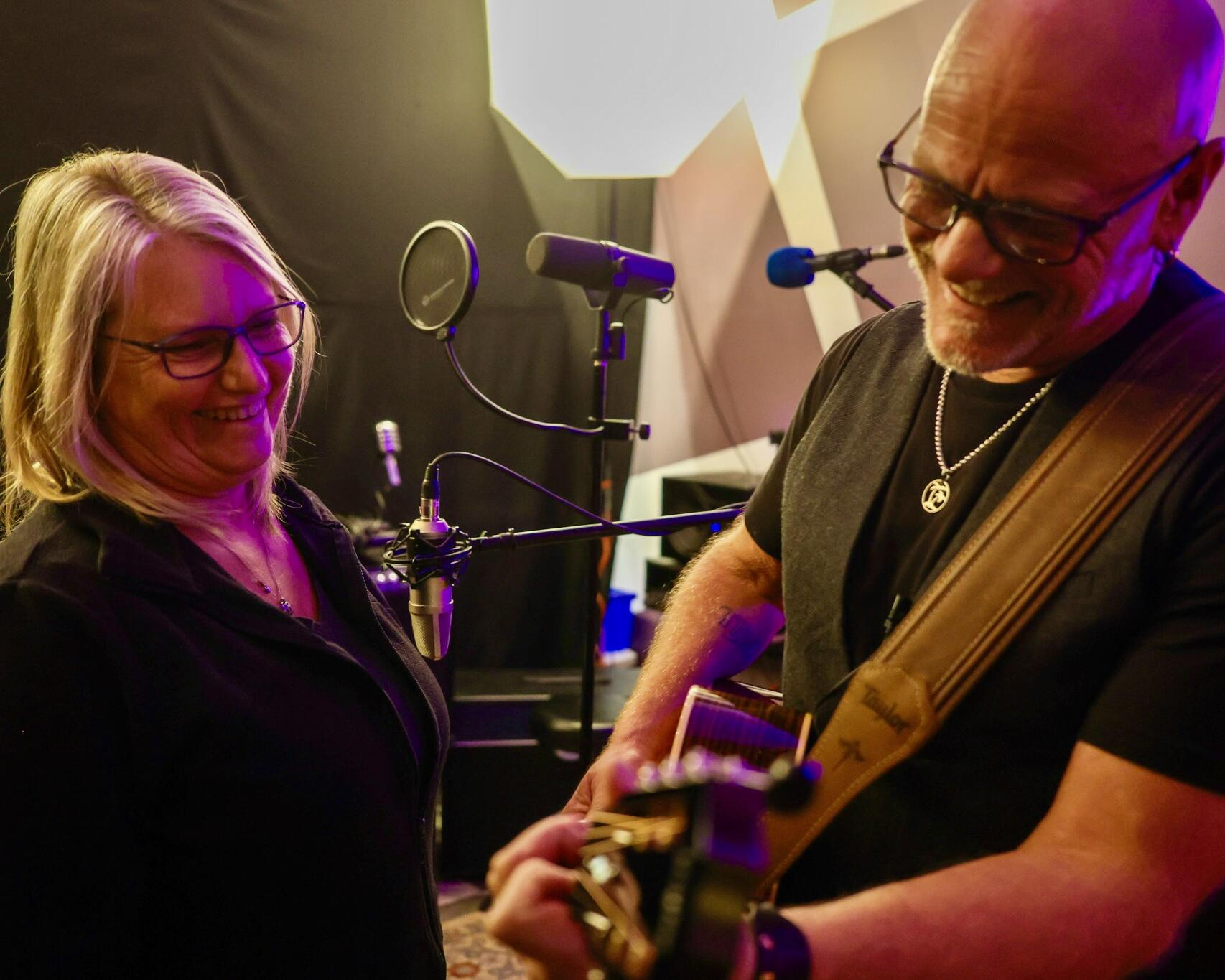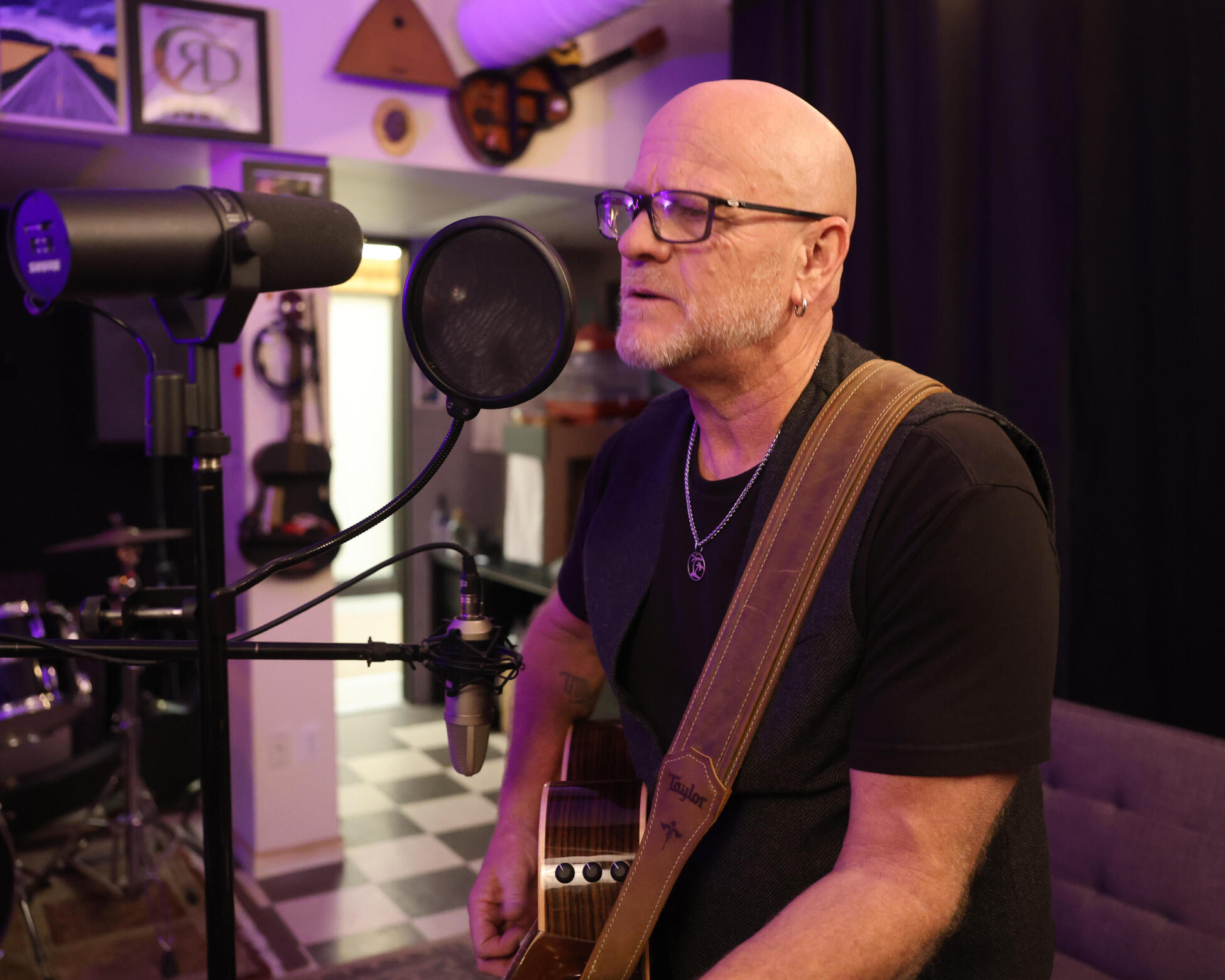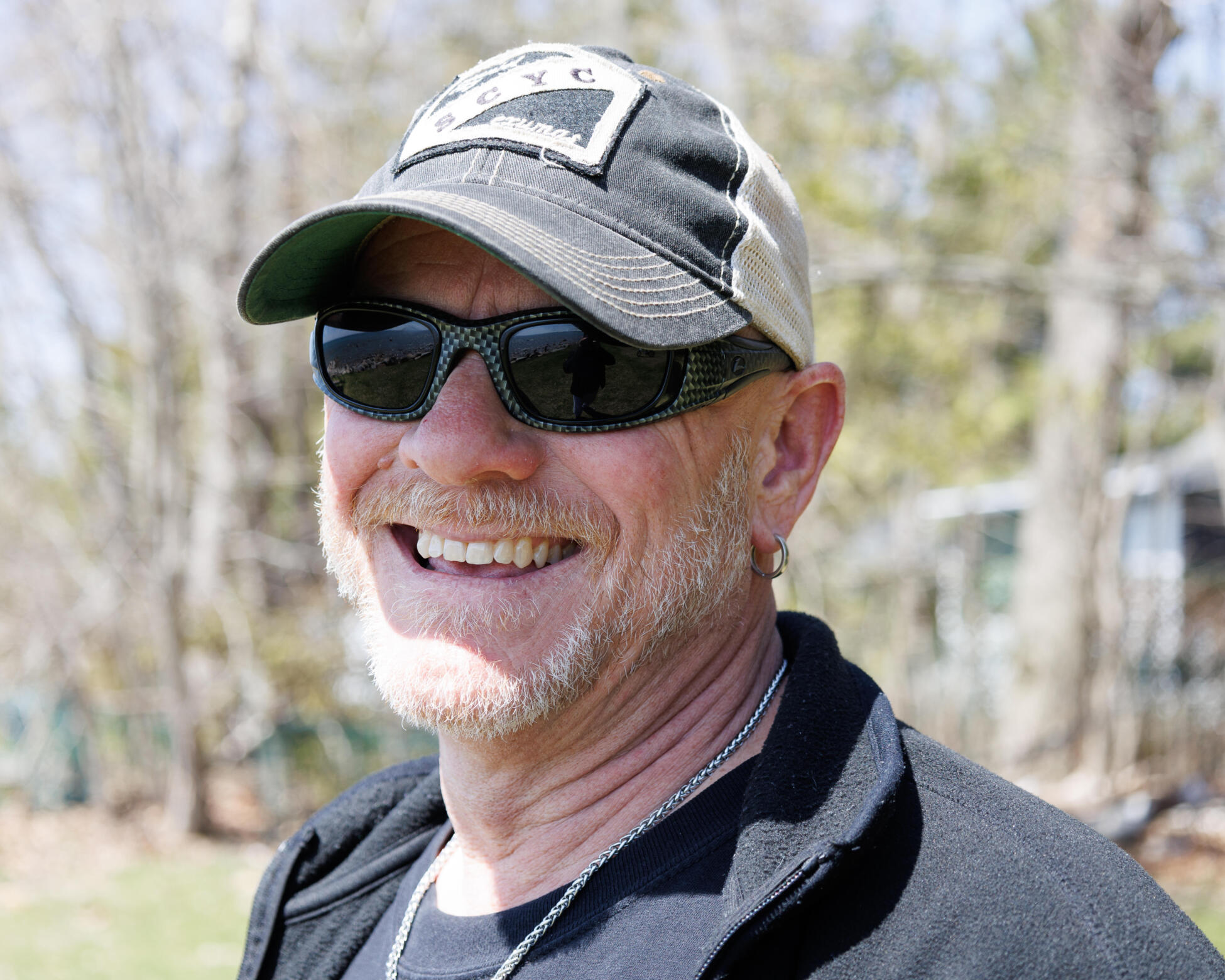The restorative power of music
In a music world that often prioritizes youth, 58-year-old singer-songwriter Dean Brandsma presents a different kind of narrative. His story is grounded in reflection, resilience, and honesty. Featured in the RestlessUrban podcast episode Crossroads, Brandsma’s journey is not a traditional comeback. It is a quiet renaissance. A decision to return to music not in search of fame, but as a source of healing, clarity, and joy.
Brandsma’s creative rebirth is not built on major labels or viral trends. Instead, it unfolds in his home studio and through his Facebook page, Dean B Music. It all began with a weekly recording. He describes his process of writing, recording, and sharing a new song. He notes, “I have moved on from that practice to make space for writing, creating, and performing live when it feels right for me.”
“The whole process has rejuvenated Dean,” notes Bowins. “He is not chasing metrics. He is focused on telling the truth through his music.”

Dean Brandsma records the song “Crossroads” at Treblecock Studios.
The crossroads metaphor becomes real
The podcast begins with the legendary image of a musician standing at a crossroads. In folklore, this is the place where the ambitious meet the devil and make a deal for greatness. Host Andrew Bowins reframes this myth. He notes that the real magic lies not in the myth itself, but in how that image mirrors our own moments of difficult choice.
Brandsma sees this metaphor as more than just a legend. He has lived it. His song Crossroads, written in the 1990s, has continued to evolve with him. “It’s kind of like the gift that keeps on giving,” he says.
“You get a different perspective depending on where you are in your life.”
A songwriter guided by stories
For Brandsma, storytelling is at the heart of his music. His greatest inspiration is folk icon Harry Chapin. “He is the ultimate storyteller,” Brandsma says. He points to Chapin’s Mr. Tanner as a song that deeply moved him. “It’s so personal. You feel like you know the guy,” he adds. “That’s what I’m striving for. That connection.”
That connection is present throughout Brandsma’s own music. In Two Nights in Memphis, a song written by his brother, he captures the tenderness of his early relationship with his partner, Deb. “It’s a reminder of a very wonderful time,” he says. Sharing those memories through song has become part of his life’s purpose.
For Brandsma, great music is not about performance. It is about inviting people in. “It’s inviting the music,” Bowins says during the interview. “Exactly,” Brandsma responds. “It’s awesome.”

Dean Brandsma at home reflecting on his journey and the importance of music on his wellbeing.
Music as a tool for healing
Although he is hesitant to label music as therapy, Brandsma acknowledges its healing power. “Therapy is a little bit harsh,” he says. “But therapeutic—yes, that fits.” His process of writing and recording songs weekly is not just a creative challenge. It gives him a sense of structure and a reason to get out of bed in the morning. “It’s a weightless feeling when you’re in the zone,” he adds.
His experience aligns with a growing body of research. According to the University of Michigan’s National Poll on Healthy Aging, 75 percent of adults over 50 say music helps them manage stress. Over 60 percent report that music improves their mood, enhances their memory, and helps them feel more connected. Research from UCLA also highlights music’s ability to promote cognitive health, social engagement, and emotional well-being in older adults.
A new definition of success
Success for Brandsma is not about chart positions or follower counts. It is about connection. “I’d literally rather have one person listen to a song all the way through and get something out of it than have a million people scroll by,” he says.
His Facebook page, Dean B Music, reflects this philosophy. He is not broadcasting for attention. He is building a community. “I didn’t invite anyone from my personal Facebook or Instagram,” he says. “I didn’t want to say, ‘Hey, listen to my music.’ I wanted people to discover it on their own and choose to listen.”
This approach is more than refreshing. It is radical in its simplicity. In a time of manufactured moments and algorithm-driven art, Brandsma is choosing depth over the reach and meaning over momentum.

Dean Brandsma smiles and entertains family on the porch at his brother’s.
Celebrating the midlife chapter
“This is my new path that I want to take,” Brandsma says. It is a path that he walks with intention. While midlife is often framed as a time of decline or confusion, RestlessUrban offers another lens. “Let’s remember it’s not a midlife crisis. It’s a midlife celebration,” Bowins says.
Brandsma agrees. “When you live alone,” he shares, “you can choose what you wish to do every day. Music is that for me, for sure.”

Dean reflects and looks out on to Georgian Bay to find his center.
Final notes on a life fully lived
Dean Brandsma may never top the Billboard charts, and he is entirely at peace with that. What he is creating instead is a legacy of storytelling, sincerity, and purpose. His music speaks to anyone standing at a crossroads, wondering if it is too late to try something new.
“And it’s your choice at the crossroads,” Brandsma says. “Every day, you’ve got to make that choice.”
Through his songs and his journey, he reminds us that we do not age out of passion.
We grow into it.
###
Bonus tracks
Click below for a deeper look at the story and a conversation between our AI avatars about the podcast. As a bonus, enjoy an introduction and reading of “When Abby Sings,” a poem by Dean’s niece Maizie Logan inspired by memories of Dean playing his guitar, Abby.
More Features about Arts
Jun 27, 2025
Exclusive preview of title track and feature video free for a limited time.
Jun 27, 2025
Artist Gary Holme reinvents himself at 70, proving it’s never too late to reclaim passion and create anew.
Jun 27, 2025
Discover the story behind the song “Two Nights in Memphis”.
Jun 27, 2025
Singer-songwriter Dean Brandsma debuts his new song, “Crossroads.”
Jun 27, 2025
Music changed my life. Playing guitar helped me heal, grow stronger, and embrace change.





